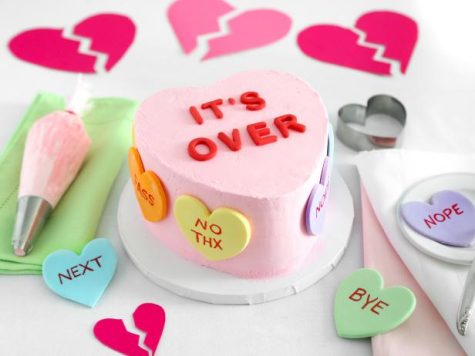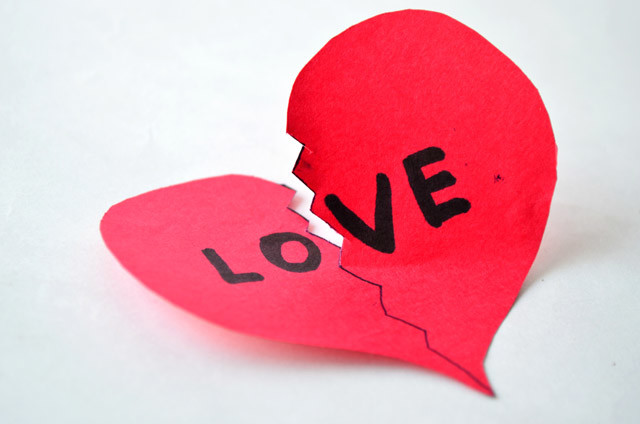Breakups: What to Know and Avoid
Why are breakups so hard? What should you avoid after a breakup?
Studies show that breakups can have the same feeling as death even though your ex hasn’t actually died. This is because you will have to learn to leave them in your past. Since you will no longer make new memories with this person, your brain processes this as a loss, and can even cause trauma.
After a breakup, you might feel heartbroken, and I mean actually heartbroken. You might feel pain in your chest, similar to that when you are suffering a heart attack. This is caused by the significant amount of stress that you’re feeling. It’s actually called broken heart syndrome and studies show that the average healing process takes about 4-5 months. In a heterosexual relationship, men and women tend to deal with breakups differently, and the healing process can be very different from each other.
Let’s start with women – as commonly discussed, women tend to be socialized to be more emotional than men. For this reason, women may suffer more emotional damage at the beginning of the breakup, as opposed to men. It’s also common for women to grieve within the first few months and complete their healing sooner than men. Men on the other hand don’t face the breakup immediately, it takes longer for them to realize and face reality which causes them to start grieving later on.
A recent study done by the Journal of Social and Personal Relationships showed that “Despite a lingering stereotype that men are less emotionally invested in relationships than women, researchers have discovered that it’s men, in fact, who suffer the greater emotional impact during a breakup.”
Is this because men take longer to face the breakup? Or could it be because men are under a stigma that does not allow them to express their feelings, so they just never let their emotions out?
Researchers give an approximate time of how long grieving takes but this does not necessarily mean it would apply to everyone. Everyone heals differently and it is very important to know that grieving is not timed. It would just come naturally to you and some people heal faster than others. 
It’s okay to feel depressed during this time. What is not okay is to feel completely drowned in your feelings. During this stage, you might find it helpful to talk to someone you are comfortable with like a relative or a close friend, someone who will really understand you. It’s also helpful to talk to a therapist because breakups do tend to leave traumas.
There are many unhealthy behaviors you should avoid during your breakup. These can include, depending on drugs and alcohol, oversharing on social media, trying to get them back, and last, but certainly not least, trying to get into a relationship right after. You might be familiar with the term “rebound”. You always want to avoid being one or having one – it backfires on both sides of the coin. Having a rebound right after your breakup can make you believe you are okay but in reality, it holds you back. Instead of taking time to reflect and focus on yourself, this will make you psychologically vulnerable and can even lead to manipulation by your new partner.
The rebound relationship has five stages. First, comes the Pre-Rebound. This stage is usually days after your breakup. During this time, you might feel the urge to be affectionate with the new person in order to fill your void and not face your reality.
The second stage is the Honeymoon stage. During this time the rebounding person – the one who is out of a recent relationship, might show excessive public displays, affection, and intimacy. This helps the rebounding person boost their confidence and they usually flaunt their new relationship publicly to prove to society that they are happier than before in order to avoid being the object of pity among their friends and family.
The third stage is Conflicts and Reality. This is when all of their flaws float up to the surface and shine under a big light. The person who was feeling an immense rush of intimacy and affection after their breakup suddenly starts to feel confused and question if they want to remain in this new relationship. This is the stage where men usually start to grieve and feel a sudden rush of emotions from their break up.
The fourth stage is Nostalgia and Comparison. In this stage, a person might feel the need to mention and compare their ex to their new partner. This is a red flag! Even though the whole relationship is already a red flag, these are signs of an unhealthy relationship because they start missing their ex and put their new partner in a very uncomfortable situation.
The Epiphany stage is the last stage; it’s the break it or make it. In this case either both partners admit their relationship is toxic, or they will continue together in hopes of a healthy one.
I do believe in the three-month rule; take three months to yourself and reflect on your goals, aspirations, and desires. Also, take this time to take a look at how far you’ve made it in life. After three months have passed by, if you feel like it is safe to start dating, go ahead.

Laura Medina is a Communication Studies major at Mercy College and is 21 years old. She is interested in the Media and Entertainment industry. She would...













